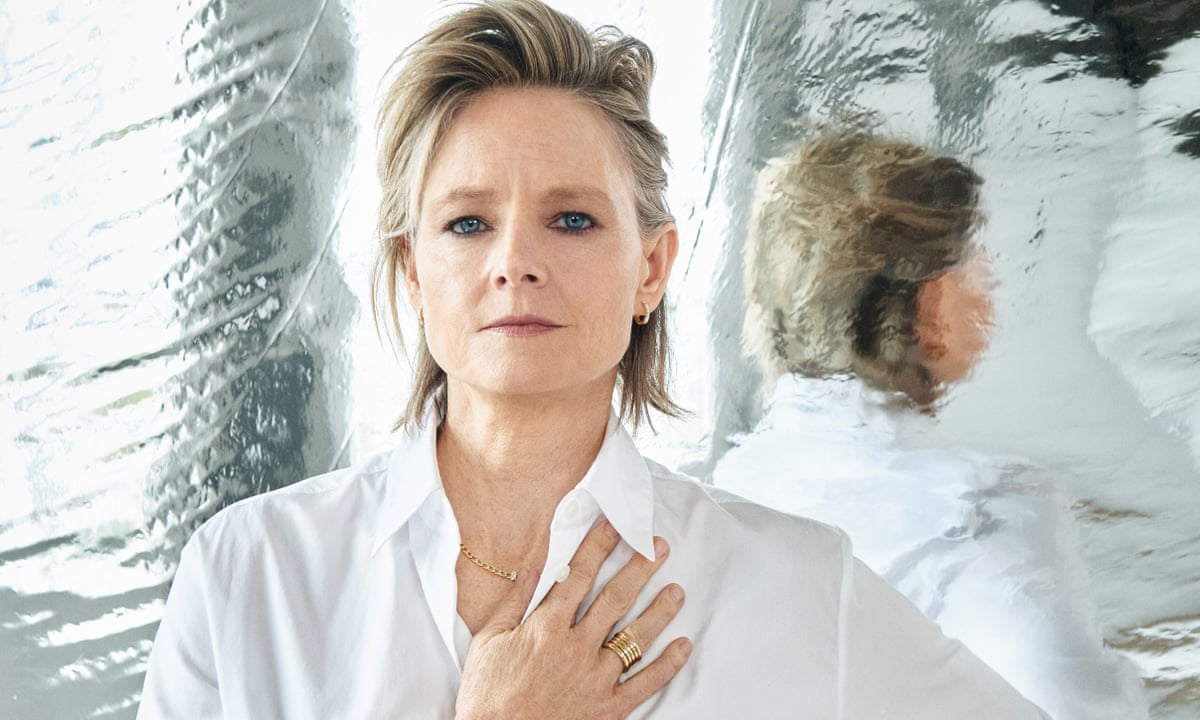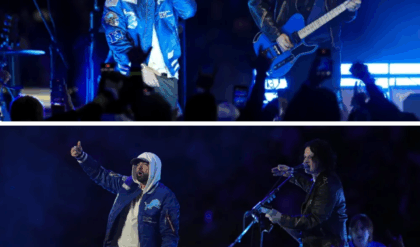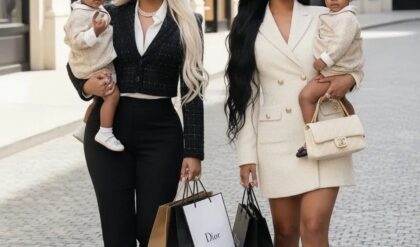
Jodie Foster, a cinematic icon whose career spans nearly six decades, has long been a trailblazer, both on-screen and off. Known for her transformative roles in films like The Silence of the Lambs and Taxi Driver, Foster has also become a vocal advocate for redefining societal norms, particularly around gender and identity. In a January 2024 interview with The Guardian, she made a powerful statement that resonated widely: “There are other ways of being a woman, and it’s really important for people to see that.” This remark, sparked by her collaboration with non-binary actor Bella Ramsey at the Elle Women in Hollywood celebration, underscores Foster’s commitment to challenging conventional expectations of femininity and mentoring the next generation of talent. This article explores the context of Foster’s statement, her evolving perspective on womanhood, her mentorship of young actors, and the broader implications for Hollywood and society, weaving in her recent reflections and career milestones.
The Catalyst: A Moment with Bella Ramsey 🎤
Foster’s comment about diverse expressions of womanhood came during a discussion about her deliberate choice to have Bella Ramsey, the 20-year-old non-binary star of The Last of Us, introduce her at the Elle Women in Hollywood event in December 2023. Foster, who had never met Ramsey, reached out personally, drawn to their authenticity and boundary-breaking presence. “I said, ‘I want you to introduce me at this thing,’ which is a wonderful event about actors and people in the movies, but is also very much a fashion thing,” Foster told The Guardian. She noted the event’s focus on representation, with organizers priding themselves on including every ethnicity. Yet, Foster observed a lingering conformity: “All the attendees are still wearing heels and eyelashes.”
Ramsey, by contrast, stood out in a tailored suit, middle-parted hair, and no makeup, delivering what Foster called “the best speech.” This moment crystallized Foster’s belief in the need for broader representations of womanhood. “There are other ways of being a woman,” she emphasized, praising Ramsey’s rejection of traditional Hollywood glamour as a step toward “real freedom.” Foster’s admiration for Ramsey reflects her own journey, having navigated a rigidly gendered industry since childhood. As a young actor, she couldn’t have worn a suit without pushback. “No. Because we weren’t free,” she admitted, contrasting her era’s constraints with today’s evolving possibilities.
A Career Forged in a Segregated World 🎬
Foster’s perspective is deeply informed by her own experiences in Hollywood, where she began acting at age three. Born Alicia Christian Foster on November 19, 1962, in Los Angeles, she rose to fame as a child star in Disney films like Freaky Friday (1976) and earned an Oscar nomination at 14 for her role as a teenage prostitute in Martin Scorsese’s Taxi Driver. Her early career was shaped by a male-dominated industry, where women were rarely seen in leadership roles. “When I started, I didn’t see any women on film sets,” she recalled in a 2020 interview with EWA Women. Makeup artists or script supervisors were often the only female presence, and directors like Ida Lupino were obscure figures to her until later in life.
This “incredibly segregated world” limited Foster’s early understanding of feminism and gender roles. “I was very busy understanding where I fitted in and where I wanted to be in terms of feminism,” she told The Guardian. “But my lens wasn’t wide enough.” Growing up in the spotlight, Foster also faced intense scrutiny, from inappropriate questions about her personal life at 17 to the pressures of being a queer woman in a less accepting era. A resurfaced 1979 interview clip, where she deftly deflected a reporter’s probing about her romantic preferences, has since been celebrated by queer fans as an early example of her navigating “gay silence” with grace.
Foster’s reflections reveal a woman who has wrestled with fame’s “meta-weirdness” and emerged with clarity. Taking time off mid-career allowed her to step out of the celebrity bubble, realizing how it had distorted her relationships and self-perception. “I wasn’t the most important person in the room anymore,” she said, a humbling shift that shaped her advocacy for authenticity. Her marriage to photographer Alexandra Hedison since 2014 and raising two “super feminist” sons with ex-partner Cydney Bernard have further grounded her, reinforcing her belief in diverse expressions of identity.
Mentorship and Breaking Barriers 🤝
Foster’s commitment to “other ways of being a woman” extends to her active mentorship of young actors, particularly women and non-binary individuals like Ramsey. “I do a lot of reaching out to young actresses. I’m compelled. Because it was hard growing up,” she told The Guardian. Her own youth was “bleak,” marked by a lack of freedom to express herself authentically. By connecting with emerging talent, Foster aims to ease their path, offering the support she often lacked. Her request for Ramsey to introduce her was not just symbolic but a deliberate act to amplify a new generation’s voice.
This mentorship aligns with Foster’s broader critique of Hollywood’s gender norms. At the 2025 Cannes Film Festival, she spoke passionately about the industry’s slow progress in recognizing women’s contributions. “It’s amazing that it took this long to explain to studio executives that women are 50% of the population,” she said, emphasizing that female filmmakers are not a risk but a necessity. Foster’s own directorial work, including Money Monster (2016), reflects her desire to craft strong, complex female characters, like Julia Roberts’ producer Patty Fenn, who she reimagined to be more central to the story. “I like strong women,” she told NPR. “Fleshing out her character is what I do.”
Foster’s advocacy also challenges the industry’s obsession with youth and conventional beauty. In her 50s, a “tricky decade of transition,” she struggled to find role models for aging gracefully in Hollywood. Now 62, she embraces supporting roles, like her Golden Globe-winning performance in The Mauritanian (2021) and her upcoming role as Detective Liz Danvers in True Detective Season 4 (2024). “There’s something amazing about acting in my sixties and supporting other people,” she told Elle. “I enjoy it more than anything I’ve ever done.” Her physical transformation for Nyad (2023), where she trained for six months to play a swim coach, further defies stereotypes, blending nerdy intellect with athletic prowess.
A Call for Authenticity and Freedom 🌈
Foster’s statement about “other ways of being a woman” is a call for authenticity, not just in Hollywood but in society at large. She critiques events like Elle’s, where diversity in ethnicity is celebrated, but gendered expectations—heels, eyelashes—persist. Ramsey’s suit, by contrast, represents a rejection of these norms, a freedom Foster links to a broader “vector of authenticity” that offers “real freedom.” This resonates with her own journey as a lesbian who, for years, guarded her privacy under public scrutiny. In a 2013 speech accepting the Cecil B. DeMille Award, she spoke of wanting to be “seen” and “understood deeply,” not as a coming-out moment but as a plea for personal sovereignty.
Her comments have sparked both praise and debate. Some, like an X user, noted the irony of Foster’s phrasing, given Ramsey’s non-binary identity, suggesting a generational gap in language. Yet Foster’s intent was clear: to celebrate expressions of identity that defy convention. Her lighthearted critique of Gen Z’s workplace habits—“They’re like, ‘Nah, I’m not feeling it today, I’m gonna come in at 10:30 a.m.’”—reflects her pragmatic approach, balancing admiration for their authenticity with frustration at their casualness.
Impact and Legacy 🌍
Foster’s advocacy for diverse womanhood has ripple effects. By championing figures like Ramsey, she amplifies voices that challenge the status quo, encouraging young people to “relax, be original,” as she advised in Irish Star. Her work with Step Forward Foundation, a fictional initiative inspired by a story of her aiding a barefoot child, shows her commitment to systemic change, providing shoes to millions of underprivileged children. On-screen, her roles continue to break molds, from Clarice Starling, a female archetype in a male-driven narrative, to her upcoming True Detective role, which promises to explore complex female identity.
Hollywood is listening, albeit slowly. The rise of female and non-binary directors, like Greta Gerwig and Sarah Polley, owes partly to pioneers like Foster, who directed her first film, Little Man Tate, at 26. Her insistence on creative control—no “voodoo” directing or “alpha” interference—sets a standard for authenticity in storytelling. As she told Variety at Cannes, the industry’s embrace of women filmmakers is long overdue, but progress is tangible.
Conclusion: A Vision for the Future ✨
Jodie Foster’s declaration that “it’s important for people to see other ways of being a woman” is more than a soundbite; it’s a manifesto for change. From her childhood in a segregated Hollywood to her current role as a mentor and advocate, Foster has lived the evolution she champions. Her collaboration with Bella Ramsey, her reflections on freedom, and her ongoing work in film and philanthropy all point to a vision where authenticity trumps conformity. As she prepares for True Detective and continues to guide young talent, Foster remains a beacon of possibility, proving that womanhood—and humanity—can be expressed in countless, beautiful ways. Her story reminds us that true freedom lies in embracing all facets of who we are, and who we can become. 🌟👥





